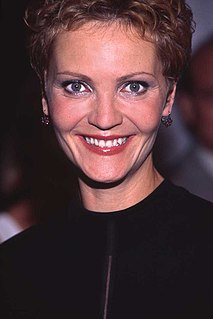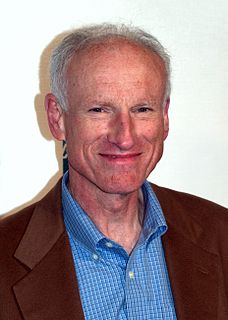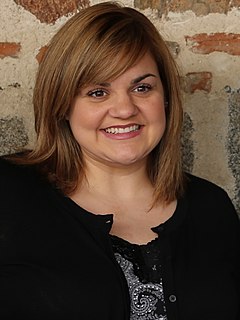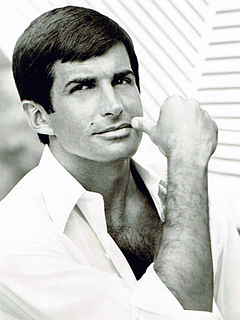A Quote by Joan Allen
I had gone through a mother having dementia in the last couple of years of her life. She was in a nursing facility in my little hometown area of northern Illinois, so I got to see a lot of other patients there in various stages of the disease. I had a firsthand exposure to it in a pretty big way.
Related Quotes
I had the experience of having my grandmother in a nursing home at the end of her life, and had dementia set in with my father. He was in a nursing home with dementia at the end of his life, but it happened for me personally 10 years ago. My father was much older than my mother, so I experienced it as a pretty young person. People's parents die at various ages, but my father died of mortality. He died of being an old person. Illness and stuff happened, but essentially, he was old and he was going to die.
Occasionally, on screen, Barbara [Stanwyck] had a wary, watchful quality about her that I've noticed in other people who had bad childhoods; they tend to keep an eye on life because they don't think it can be trusted. After her mother was killed by a streetcar, she had been raised in Brooklyn by her sisters, and from things she said, I believe she had been abused as a child. She had lived an entirely different life than mine, that's for sure, which is one reason I found her so fascinating. I think her early life was one reason she had such authenticity as an actress, and as a person.
I had developed a relationship with one of the anti-abortion sidewalk counselors who stood in front of my facility. We talked regularly through the fence and she had asked me to go have coffee with her one day. I was impressed with her persistence and, honestly, I thought I would really like her if I got to know her.
I found her lying on her stomach, her hind legs stretched out straight, and her front feet folded back under her chest. She had laid her head on his grave. I saw the trail where she had dragged herself through the leaves. The way she lay there, I thought she was alive. I called her name. She made no movement. With the last ounce of strength in her body, she had dragged herself to the grave of Old Dan.
She remembered that once, when she was a little girl, she had seen a pretty young woman with golden hair down to her knees in a long flowered dress, and had said to her, without thinking, "Are you a princess?" The girl had laughed very kindly at her and asked her what her name was. Blanche remembered going away from her, led by her mother's hand, thinking to herself that the girl really was a princess, but in disguise. And she had resolved that someday, she would dress as though she were a princess in disguise.
Her blog was doing well, with thousands of unique visitors each month, and she was earning good speaking fees, and she had a fellowship at Princeton and a relationship with Blaine - "You are the absolute love of my life," he'd written in her last birthday card - and yet there was cement in her soul. It had been there for a while, an early morning disease of fatigue, shapeless desires, brief imaginary glints of other lives she could be living, that over the months melded into a piercing homesickness.
The idea of the book ["The Japanese Lover"] came in a conversation that I had with a friend walking in the streets of New York. We were talking about our mothers, and I was telling her how old my mother was, and she was telling me about her mother. Her mother was Jewish, and she said that she was in a retirement home and that she had had a friend for 40 years that was a Japanese gardener. This person had been very important in my friend's upbringing.
If she had been left alone she would have gone on, in her own way, enjoying herself thoroughly, until people found one day that she had turned imperceptibly into one of those women who have become old without ever having been middle aged: a little withered, a little acid, hard as nails, sentimentally kindhearted, and addicted to religion or small dogs.



































